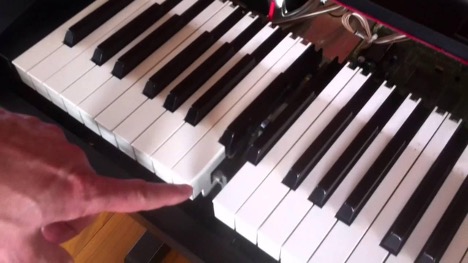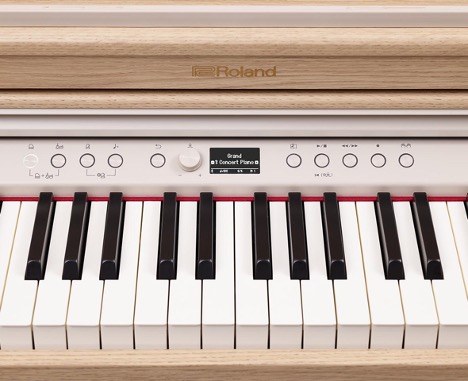Weighted Keys on a Synthesizer: Definition and Purpose
Modern synthesizers offer musicians a wide range of functions and characteristics, but the keyboard deserves special attention. It is the mechanism of the keys that determines the convenience and realism of the game.

The content of the article
Why choose weighted keys
Weighted keys on a synthesizer are a technology designed to emulate the feel of playing an acoustic grand piano or upright piano. Musicians value them for their precise response and ability to convey the nuances of performance dynamics. The weighted keys are designed with a mechanism that creates a pressure response similar to that felt when playing a traditional keyboard.
The use of such a keyboard allows pianists with more refined playing techniques to control the strength of sound and its shades as accurately as possible, which is especially important when performing complex musical works.
Number of keys and instrument selection
The choice between 49 or 61 keys depends on many factors, including musical preference, playing style, and how often you use the instrument. For beginning players, a standard 49-key keyboard is usually sufficient, but more experienced players may require the extended range of 61 keys.
How many keys you need on a synthesizer is an individual question. Some pieces of classical music require a full-size keyboard, which includes 88 keys, allowing the player to cover the entire range of the piano part.
Weighted key design
Weighted keys - what are they and how do they work? These are keys with a special mechanism that imitates the mass and resistance of the keys of a classic piano. Each key has its own weight. This makes the touch heavier in the lower range and lighter in the upper range. The effect is exactly the same as on an acoustic instrument.
Weighted keys not only increase the level of realism in playing, but also help pianists develop proper technique, which is important for those planning to switch from digital to acoustic instruments.

Full-size keyboard and its benefits
For serious pianists and professionals seeking full musical expression, having a synthesizer with weighted keys is a must. Despite the wealth of educational literature, beginners still often ask how many keys does a synthesizer with a full-size keyboard have? Typically this is 88 keys. This corresponds to a standard piano. It also gives performers the opportunity to play the widest repertoire without restrictions.
A full-size keyboard is worth turning to when you need the full range of notes available on an acoustic piano. This is especially true when working with classical compositions, where every octave matters.
But this design also has its disadvantages:
- Synthesizers with weighted keys are typically heavier than their non-weighted counterparts.This can be a problem for players who frequently move the instrument from place to place.
- Weighted keyboards are most often found on more expensive synthesizer models. For new musicians or those on a budget, this can be a significant barrier.
- The design of weighted keys is more complex. This can lead to increased costs and difficulties in the event of a breakdown.
- For beginners who are not used to the resistance of acoustic instruments, playing weighted keys may seem unnecessarily difficult and tiring.
- Switching from unweighted to weighted keys may take some time to adjust to. And this can slow down the learning process at the beginning.
- Some weighted keyboards may not accurately convey the nuances of dynamics. This is especially true for budget models, which reduces the expressive capabilities of the musician.
Conclusion: Weighted Keys and Their Role in Music
Weighted keys are not just an additional feature of the synthesizer. This is an important element that provides depth and expressiveness to musical performance. When choosing between different numbers of keys and types of keyboards, musicians must consider their personal needs and musical ambitions.
As with any aspect of music education and performance, choosing the right instrument will help you progress faster and achieve greater musical excellence.





